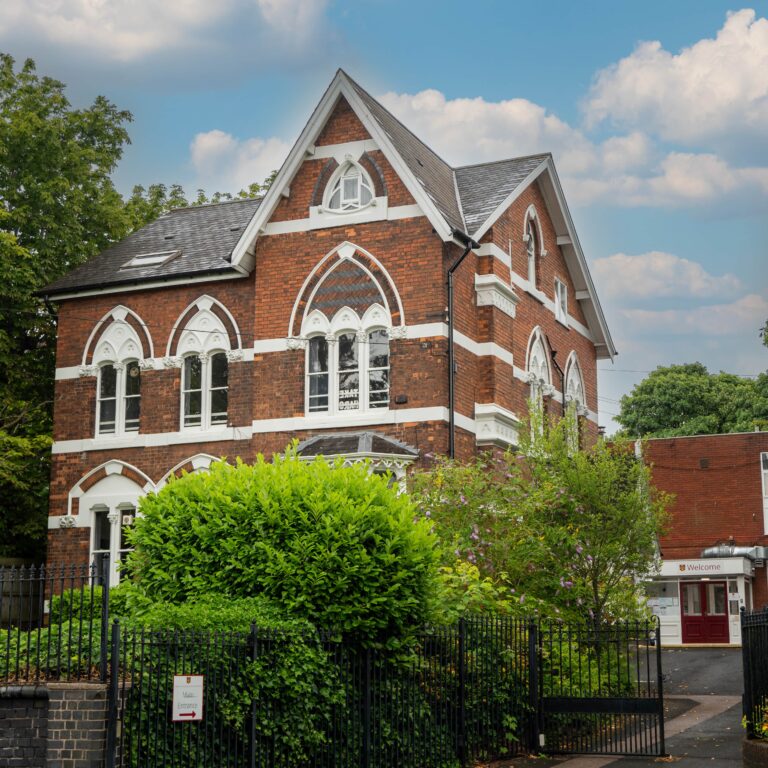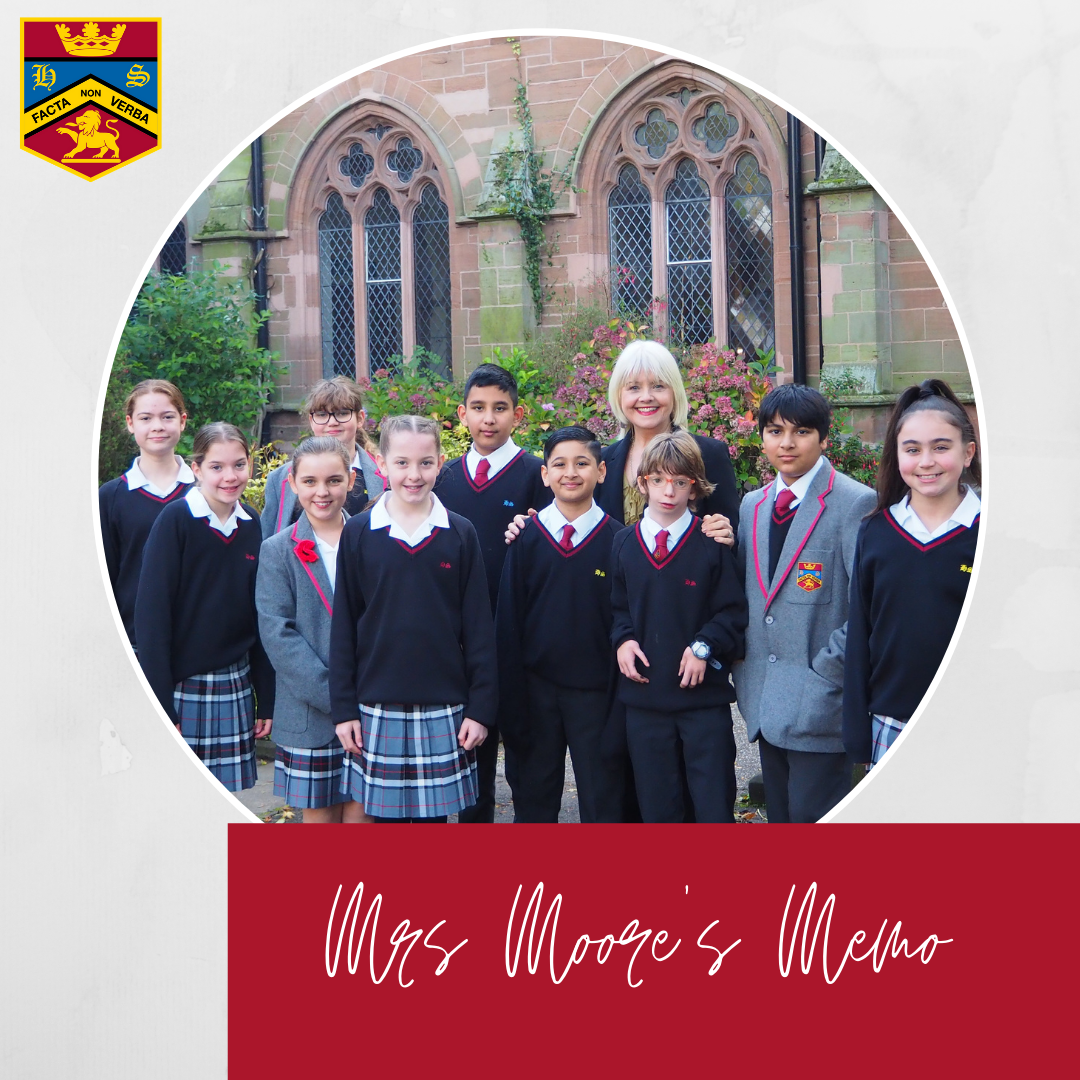Dear children and young people,
I began to write this final memo during our lovely, sunny half-term break and am finishing it just as I enter my penultimate (look it up) week as Head of Senior School at Highclare. I am obviously writing this with quite a heavy heart because, my retirement date is looming fast and, although I will still be working through the summer and will be present on GCSE/A level results day in August, I only have another few weeks of being your head teacher before the summer holidays begin and I wave a sad farewell to my office, the Abbey and – most importantly – to all of you lovely young people. However, I am not going to dwell on what the future may hold in this my final memo to you all because I want to spend these next few pages reminiscing and remembering all the wonderful years I have experienced during my time at Highclare School. Spoiler alert! Yes, these pages will I’m afraid contain some poetry, but you will just have to grin and bear it!
I always had a great love of literature which I believe was inherited from two amazing women in my life – my dear Irish mother and my amazing Welsh Nanna. You will remember Nanna from the story I told you in one of my memos last year about the precious red poetry book that I inherited from her? Anyway, it was her poetry recitals and my mother’s passion for the poetry of WB Yeats and the Irish playwrights that coloured my childhood with a love of reading, writing and, of course, poetry! One of my favourite poems that my mother read to me and I subsequently learnt by heart was a sad poem by Yeats which was addressed to the love of his life, Maud Gonne O’Brien, entitled ‘When you are old’. Yeats loved her very much and she loved him, but she eventually after a few years and some unsuccessful proposals on the part of Yeats, ended up marrying someone else and breaking poor Yeats’ heart! The poem relates how Yeats imagines her when she is no longer young and beautiful sitting by a fire and remembering the love they had for each other in their younger days. I particularly love the second stanza in which Yeats declares that ‘one man loved the pilgrim soul in you/and loved the sorrows of your changing face.‘ Those words are even more poignant to me now as I too am getting on a bit to say the least!

Poor Yeats never really recovered from his love for Maud, but he continued to write and became one of the greatest poets of all time. When I retire and have the time to do so, I intend to travel back to Ireland and visit Yeats’ country in County Sligo to see the mighty Ben Bulben mountain and the beautiful coastline, rivers, lakes and countryside that inspired much of his poetry, including this beautiful, romantic poem entitled ‘He wishes for the Cloths of Heaven’ The picture below the poem is of Ben Bulben and I like to imagine that those cyclists are me and Mr Moore!


Anyway, enough of poetry and Yeats for now at least as I return to my memories of Highclare when I first joined the school in 2006. I remember driving in through the Station Road gates and being terribly nervous because I wanted the job so much! As mentioned above, I was applying for the post of part-time teacher of English after spending the previous four years teaching in a very large comprehensive School with overcrowded classes. It was a very good and very popular school, but because of that, the year 10 and 11 classes that I taught each held 34 pupils! Anyway, I remember seeing the beautiful Abbey building and gardens and keeping my fingers and toes crossed that I would get the job as it seemed such a welcoming and happy looking place to teach in. Obviously, in those days, Highclare Senior School was a girls’ school with only a very small number of boys in the Sixth form. The uniform was very different too as were the girls I taught compared to the mixed classes that I was used to. The interview with the then Headmistress, Mrs Viles, and the then Head of English, Mrs Riley, went well and I was delighted to be offered the job! The interview consisted of me teaching some lovely U4 girls a scene from Macbeth and I simply could not believe how talented they were and how well they knew the play! Mrs Riley was a wonderful teacher and I learnt much from her over the years – since her retirement she is remembered with love and affection by many of her ex-pupils (and by those of us teachers who knew and loved her) and I am very grateful to have been a member of the English Department under her command! Obviously, our own amazing Mrs Dawson is also very worthy of note and I owe much to her too – thanks both!
Joining me in the first autumn term at Highclare in September 2006 was our very own Miss Watson and dear Mrs Healey who left us last year as you know to return to her native Scotland where, I am happy to relate, she is still delivering fabulous maths lessons to the lucky children north of the border! Miss Watson, is and always has been an inspirational teacher who has the power to bring history to life. I will never forget the wonderful assemblies she has delivered over the years and am in awe of her innate ability to remember dates, statistics and interesting facts without ever using notes! Mrs Dawson also has that special magic which some lucky teachers possess without really knowing it – the power to bring literature to life and to cultivate a love of reading and writing in the children who have had and continue to have the privilege of being in her lessons. I first saw Mrs Dawson in action at her last school where I was, believe it or not dear children, her PGCE student during a placement from Birmingham University as part of my teacher training. I watched dear Mrs Dawson bring out the best in her students – some of whom were quite challenging to teach. However, I learnt a lot from shadowing her and watching her methods of teaching often very reluctant students how to analyse poetry or read Shakespeare and it’s strange to still be part of her English Department at Highclare and still be in awe of her skills! Another teacher really worthy of note is Mrs Cassell and I have her to thank for including me in her wonderful overseas trips to Iceland and Costa Rica. Mrs Cassell is one of the most practical and well-organised people I have ever met and those of you lucky students who had the privilege of being part of one of her trips (near or far) will testify to this. The memories of the magic of the mystical land of ice and fire (Iceland) and the intoxicating beauty of Costa Rica will sustain me in my retirement and, like the great poet Wordsworth (sorry children – I had to sneak another poetry reference in) writes in the final stanza of his wonderful poem, ‘The Daffodils’ those memories will (even if I’m not reposing on my couch) come back to me and ‘flash upon that inward eye’:
For oft, when on my couch I lie
In vacant or in pensive mood,
They flash upon that inward eye
Which is the bliss of solitude;
And then my heart with pleasure fills,
And dances with the daffodils.
I have thoroughly enjoyed working with our dear Mr Parkinson as Head of 6th form and particularly loved our pre-Christmas 6th form trips to London – most memorably dancing and singing like no-one was watching to the Abba songs during theatre trips to ‘Mamma Mia’ and ‘Kinky Boots’! Mrs Good has been a fabulous support to me over the years and deserves a mention because of the care and support she has given to all the children in KS3 over the years and to me! Likewise, Mrs Desousa Barlett has supported me in her role as KS4 Coordinator and must be commended for all she does to ensure that you young people in L5 and U5 are kept on your toes academically and supported so well pastorally. Anyway, please never forget to appreciate the teachers at Highclare School and thank them occasionally for the great passion they put into their teaching and the excellent results they achieve as a result. There are many other teachers at Highclare worthy of note, but too many for me to mention in these pages so please never take them for granted – I promise that you will look back when you get older and remember them with fondness, the same way that I remember the teachers who weaved their magic on me and gave me such an enduring love of literature – especially poetry! Here she goes again I hear you cry!
As you will remember from my ramblings in past memos, as children we were expected to learn poetry by heart and be able to recite it in front of the class. Some of the earliest poems I remember reciting were ballads such as ‘The Highwayman’ by Alfred Noyes and ‘The Lady of Shalott’ by Alfred Lord Tennyson. I was in love with the Highwayman in Noyes’ poem (don’t tell anyone) because of how he is described in the poem. The opening of the poem and the metaphors used by Noyes are absolutely beautiful and, on those dark nights when the moon lights up the sky in Sutton Coldfield and I’m driving home in the darkness, the first lines of the poem come back to me. Here are the first few stanzas – as a child, I always found the opening stanza quite spooky and especially loved the metaphor of the moon as a ‘ghostly galleon tossed upon cloudy seas’:

The wind was a torrent of darkness among the gusty trees.
The moon was a ghostly galleon tossed upon cloudy seas.
The road was a ribbon of moonlight over the purple moor,
And the highwayman came riding—
Riding—riding—
The highwayman came riding, up to the old inn-door.
He’d a French cocked-hat on his forehead, a bunch of lace at his chin,
A coat of the claret velvet, and breeches of brown doe-skin.
They fitted with never a wrinkle. His boots were up to the thigh.
And he rode with a jewelled twinkle,
His pistol butts a-twinkle,
His rapier hilt a-twinkle, under the jewelled sky.
I won’t carry on as the poem is much too sad at the end, but the words have stayed with me over the years and I can still recite all of the stanzas word for word – ask poor Mr Moore! Another poem I remember learning by heart which filled me with awe and wonder and a love of history too was ‘The Destruction of Sennacherib’ by Lord Bryron (a poet who went on to be another one of my very favourites when I grew up). I was so intrigued by the battle described in the poem, that I found myself rushing to the library to find out if it really happened! There was no Google in those days dear children so all our knowledge was garnered from the encyclopaedias that we received updated versions of every Christmas or from the local library! Anyway, Sennacherib (705 BC to 681 BC) was king of the Assyrians, an ancient Babylonian tribe which the Biblical account maintains was destroyed in this final battle through the divine intervention of an angel of death. History probably holds the real truth, but I love Byron’s version of the battle anyway as it is so vibrant and terrifying!
See below:
The Destruction of Sennacherib
The Assyrian came down like the wolf on the fold,
And his cohorts were gleaming in purple and gold;
And the sheen of their spears was like stars on the sea,
When the blue wave rolls nightly on deep Galilee.
Like the leaves of the forest when Summer is green,
That host with their banners at sunset were seen:
Like the leaves of the forest when Autumn hath blown,
That host on the morrow lay withered and strown.
For the Angel of Death spread his wings on the blast,
And breathed in the face of the foe as he passed;
And the eyes of the sleepers waxed deadly and chill,
And their hearts but once heaved, and for ever grew still!
And there lay the steed with his nostril all wide,
But through it there rolled not the breath of his pride;
And the foam of his gasping lay white on the turf,
And cold as the spray of the rock-beating surf.
And there lay the rider distorted and pale,
With the dew on his brow, and the rust on his mail:
And the tents were all silent, the banners alone,
The lances unlifted, the trumpet unblown.
And the widows of Ashur are loud in their wail,
And the idols are broke in the temple of Baal;
And the might of the Gentile, unsmote by the sword,
Hath melted like snow in the glance of the Lord!
Again, this is a poem which I can still recite word for word much to the chagrin of dear Mr Moore and our long-suffering children! It’s actually one of my party pieces – strange I know (but true)!
Back to Highclare and to my early memories of teaching those girls! I confess that I got into trouble a couple of times with some of the older teachers for asking the girls to sing and recite poetry – often very loudly during my lessons! I also used to tell them stories – especially on warm summer Friday afternoons when they asked me to tell them ‘a button jar story’. In case you’re wondering, I used to have a jar of different shaped and coloured buttons and a favourite lesson saved for Fridays was for one of the girls to choose a button from the jar and for me to make up a story based on where it came from (the garment it fell off/who it belonged to/what happened to the wearer of the garment for example). I so enjoyed making up those stories and the girls would listen intently to my tales and then be given the task of choosing another button each to base their stories on for homework over the weekend. We had such fun doing this – it was hardly like teaching (or homework) at all as we all enjoyed hearing each others’ stories so much! I really wish I’d published some of those stories as they were extremely good.
I bet you didn’t know this children, but our own lovely daughter, Eleanor, was a pupil at Highclare back in the olden days when there was only one school building, Woodfield, in Wylde Green. I used to walk her to school from our home in Station Road, before jumping in the car and racing to work in central Birmingham. In those days dear children, I wasn’t even a teacher and wasn’t really even thinking of becoming one, choosing instead to carry on as a Legal Executive at a large Solicitors’ firm in Birmingham. Whilst I did enjoy my job, I didn’t really feel fulfilled or passionate about it. I therefore chose to go back into education, get a degree in English and a PGCE and train to be an English teacher. The rest, as they say, is history! Anyway, after teaching for a few years at that large comprehensive school in Birmingham, a vacancy came up for a part-time teacher of English at Highclare and I jumped at the opportunity to teach here.
It wasn’t easy for me to go back into studying though, especially as – dare I say it? – I failed my Maths O level!! You simply have to have Maths, English and Science qualifications in order to teach (or at least you had to when I started my teaching studies). However, Maths was always my weakest link and I think this was because of a teacher I had in year 6 – whom I shall refer to as Miss Trunchbull. You may wonder where my strange accent comes from dear children? Well, I spent my school years in Northern Ireland and, in those days, every child was entered for the 11+ in order to be given the chance to go to Grammar School. Obviously, I always loved literature and never had any problem with English. However, Maths was my Achilles heel (look it up!). It didn’t help that my dad’s ideas on how to improve my mental arithmetic was to stand me in front of him with a stop watch and make me recite my tables. I was fine until I got to the 8 times tables, but things went downhill rather rapidly after that I’m afraid! Going back to Mrs Trunchbull in year 6, her party trick was to cover my maths homework pages with huge red X’s. She used a thick red crayon to do this and the glee on her face as she decimated my efforts was terrible to observe! However, I was very good at verbal and non-verbal reasoning for some reason and, despite Miss Trunchbull’s cruel remarks that ‘you’ll never pass your 11+ missy’, I actually proved her wrong and passed! I also, you will be delighted to hear, eventually had some tuition and passed my GCSE Maths – yayy!! However, the memory of how hurtful Miss T’s words were is probably the main reason why whenever over the years children and young people have appeared in my office crying and proclaiming that they ‘can’t get Maths’, or ‘English is stupid, (especially poetry L)’ I told them about my own struggles and challenges at school and urged them to keep on trying!
I will say it again here though as I want you to always remember my words (actually I nicked them from Churchill – don’t tell anyone!) (Even if you DO forget my poems) :

I have probably mentioned this before, but I’d like to remind you that Churchill struggled at school too because he was dyslexic (he was probably much better at Maths than me though) – so learn from his/my words and remember them whenever you feel that you’re ever in danger of giving up!
Over these last few months of my time at Highclare I’ve been enjoying spending time in the lovely Abbey gardens and doing my best to drink in its beauty and remember your laughter as the minutes tick down to the end of term. I have been trying to imagine what you will look like when you’re all grown up and starting out on your adventures into adulthood. I have been lucky to have been able to spend so much time with you all and with all the lovely children I’ve spent time with over my years at Highclare. I’ve also really appreciated the support I have received from your lovely parents and I want to take this opportunity of saying a huge ‘thank you’ from the bottom of my heart to all you wonderful mums, dads, grandmas and granddads who have been so kind to me over the years and for giving me the great honour of spending so much time with your amazing young ones.
I have genuinely loved every minute of time at Highclare and know that the change of career I embarked on all those years ago was the best thing I ever did. In the powerful words from the opening stanza of William Ernest Henley’s poem, ‘Invictus’ ‘I thank whatever gods may be…’ that I chose to become a teacher and ended my career in such a wonderful School.
Anyway, I refuse to become maudlin (look it up) and to immerse myself in misery… the summer is coming and I have my own new adventures to look forward to. I certainly hope I don’t end up like the teacher in the following poem… but you never know…
The Ghost Teacher by Allan Ahlberg
The school is closed, the children gone,
But the ghost of a teacher lingers on.
As the daylight fades, as the daytime ends,
As the night draws in and the dark descends,
She stands in the class room, as clear as glass,
And calls the names of her absent class.
The school is shut, the children grown,
But the ghost of the teacher all alone,
Puts the date on the board and moves about
(As the night draws in and the stars come out)
Between desks -A glow in the gloom-
And calls for quiet in the silent room.
The school is a ruin, the children fled,
But the ghost of the teacher, long time dead,
As the moon comes up and the first owls glide,
Puts on her coat and steps outside.
In the moonlit playground, shadow free,
She stands on duty with a cup of tea.
The school is forgotten -the children forget-
But the ghost of a teacher, lingers yet.
As the night creeps up to the edge of day,
She tidies the Plasticine away;
Counts the scissors -a shimmer of glass-
And says, “Off you go!” to her absent class.
She utters the words that no one hears.
Picks up her bag…
And
Disappears.

A Mr Sneary joke
I love that poem as I like to imagine my old teachers still on duty in that faraway school in the land of my childhood days!
Before I finish, dear children, please remember that, in a world where you can be anything, be kind. You are amazing, you are important, you are special, you are unique, you are precious, you are loved and I will miss you all.
Love
Mrs M






